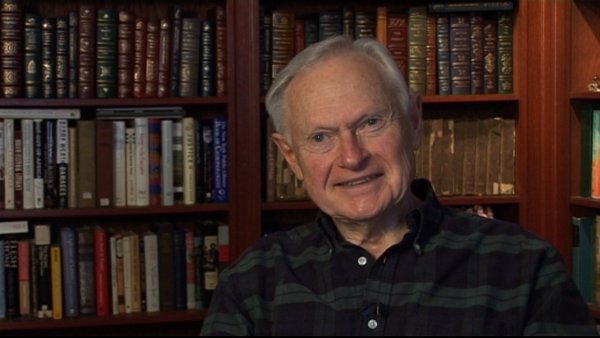NEXT STORY

Death in my family
RELATED STORIES

NEXT STORY

Death in my family
RELATED STORIES


|
Views | Duration | |
|---|---|---|---|
| 51. The unconscious mind | 255 | 03:20 | |
| 52. Death in my family | 239 | 03:56 | |
| 53. 'If I could be the master over disease' | 183 | 02:44 | |
| 54. Learning I have prostate cancer | 335 | 04:49 | |
| 55. Facing death | 374 | 02:49 | |
| 56. How to prevent a surgical disaster | 227 | 01:36 | |
| 57. First: stay calm! | 215 | 04:13 | |
| 58. Being in the right place at the right time | 185 | 04:25 | |
| 59. Supernatural or just coincidence? | 260 | 03:28 | |
| 60. Ageing is an art | 1 | 282 | 03:29 |


And a few years after the book came out, I saw this quotation and went back to a book of Havel's essays that I have. It's actually a book of essays he wrote while in prison. And he says, and I've quoted this so many times: 'Hope is not really believing that something will turn out well, but believing that no matter how it turns out, it will make sense'. And that changes one's whole viewpoint about various crusades, including the crusade to help a dying person. You know, what makes sense for that dying person? What kind of empathy do you have to have… in order to see his impending death through his eyes? What kind of moral imagination do you have to have to see the whole notion of death through the eyes of people like him or his family? So it's a process, as Shelley puts it, of going outside of oneself… and seeing the minds of others, and again, in his words, and of many others, and the recognition that, in total disagreements, even if there's no decision that can be made, to come up with a solution, whether it's compromising or whatever it may be, that makes the most sense, under the circumstances, including circumstances where the problem is just insoluble, as so many of our personal and national and international problems are.
So again, I've been sort of jumping around about various things, but I'm, as I said earlier, a great believer in the power of the unconscious mind. That, you know, this stuff is in us and you think about one thing, and suddenly it brings something else, and if you were to examine, you'd... take time examining it, you would find out that they really are connected. So, whenever I get a burst of thought out of nowhere, I just express it, especially when I'm writing, because by my way of writing, I don't leave anything out. If I get a stray thought, it goes into my writing and lo and behold, by the end of the chapter, there seems to be some reason why it inserted itself at that point. And, you know, again, to repeat myself, writing, to me, is an expression of one's unconscious mind. The unconscious mind is the high road toward expressing what you really know in this world and in this life.
Sherwin Nuland (1930-2014) was an American surgeon and author who taught bioethics, the history of medicine, and medicine at the Yale University School of Medicine. He wrote the book How We Die which made The New York Times bestseller list and won the National Book Award. He also wrote about his own painful coming of age as a son of immigrants in Lost in America: A Journey with My Father. He used to write for The New Yorker, The New York Times, Time, and the New York Review of Books.
Title: The unconscious mind
Listeners: Christopher Sykes
Christopher Sykes is a London-based television producer and director who has made a number of documentary films for BBC TV, Channel 4 and PBS.
Tags: How We Die, Vaclav Havel, Percy Shelley
Duration: 3 minutes, 20 seconds
Date story recorded: January 2011
Date story went live: 04 November 2011